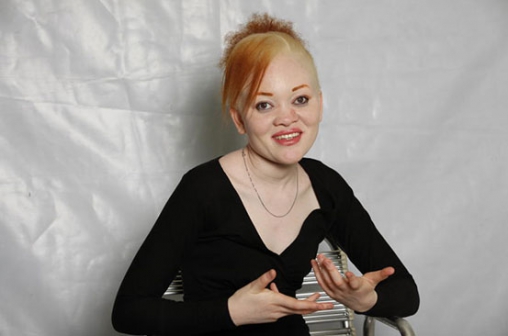×
The Standard e-Paper
Kenya’s Boldest Voice

Nairobi: Lucy Nyawira catwalks the runway with confidence. The young woman, is not your ordinary model. She has albinism. But that does not bother the 19-year-old, because she knows there is beauty in diversity.
“Albinism is beautiful. Let’s all appreciate that uniqueness encourages diversity,” Nyawira tells The Standard on Saturday when the team meets her at KICC during the International Albinism Awareness Day.